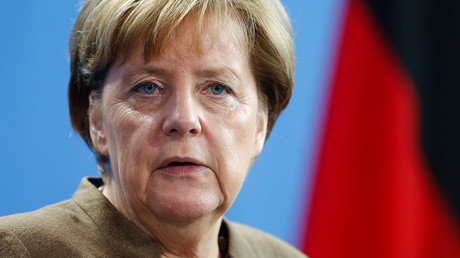Refugees in Germany more committed to democratic values than Germans – study

Refugees that have been accepted by Germany over the past years have shown a deeper devotion to European democratic principles in a whole range of aspects than their new fellow countrymen, a recent study suggests.
The study conducted by Germany's Federal Office for Migration and Refugees (BAMF) along with the Institute for Employment Research (IAB) is a first large-scale research into refugees’ motivations to leave their home countries, their first impressions of and experiences in Germany and expectations of the future.
The survey of 2,349 refugees aged 18 and older was carried out between June and October 2016, and covers those who arrived in Germany between 2013 and January 2016.
Most of the refugees – 96 percent of respondents – agree that democracy is the best system of government, one percent higher than the Germans who took part in a World Values Survey.
Almost 60 percent of Germans say that the government should be replaced by experts in deciding “what is best for the country.” That opinion was shared by 55 percent of the refugees.
At the same time, 96 percent of refugees and 92 percent of Germans support free elections, saying this is the most important aspect of democracy. An equal proportion of both groups – 92 percent – also stand for equal rights for men and women.
When asked whether democracies should create citizens’ rights and protect people from “government oppression,” 93 percent of refugees supported the idea against 81 percent of Germans.
More than 80 percent of refugees say that the government should “tax the rich and support the poor”. Fewer Germans – 71 percent – approved of the principle.
The overwhelming majority of refugees (70 percent) said that they were forced to leave their homeland out of fear of war and violence. Some 45 percent said the main reason to leave for Germany was persecution back at home, while 39 percent migrated due to unsatisfying living conditions. Discrimination and reluctance to join the military were also among the reasons cited, at 38 and 36 percent respectively.
Germany was chosen among other European destinations because of its attitude towards human rights (73 percent), good educational system (43), open-door policy (42), welfare and social benefits (26).
As for the integration into the German society that has long raised concerns, the study showed that nearly 90 percent of refugees who did not know German when they arrived were eager to learn the language and find a job.
During the time spent in Germany, a refugee has on average connected with three Germans and five other refugees.
Refugees have also shown a better level of education than expected, with some 50,000 being skilled enough to find job in Germany between September 2015 and September 2016. Of those, 30,000 are earning enough to enter the social insurance contribution program.
Most of the refugees work in logistics, warehousing and agriculture. Some of them are self-employed. Nearly 100,000 are receiving unemployment benefits.
The study is scheduled to have a second part, which will cover 4,500 people.
At the same time a poll conducted by the YouGov market research firm in July showed that majority of Germans doesn’t trust that Chancellor Angela Merkel will manage to deal with the ongoing refugee crisis.
At least 66 percent of respondents said they were against Merkel’s welcoming policy towards refugees, while only 27 supported the chancellor.
Fear of terrorist attacks like those in Paris and Brussels, along with a number of deadly assaults inside Germany, are inevitably driving many Germans to reconsider their views of far-right parties such as anti-immigration Alternative for Germany (AfD), until recently considered extremist.
Another poll recently showed that if parliamentary elections were held in 2016, AfD would make huge gains at the expense of Merkel’s Christian Democrats. As of September 2016, the party was already represented in ten out of 16 German regional parliaments.















